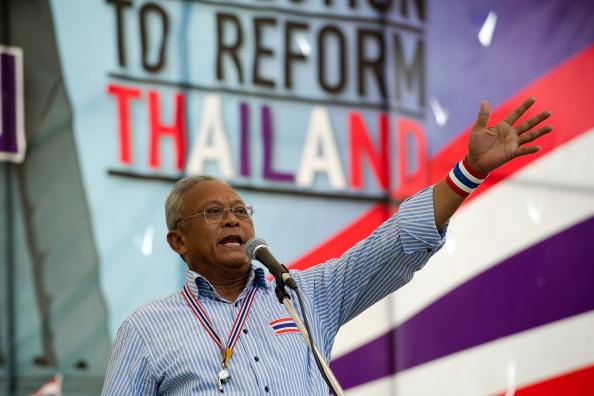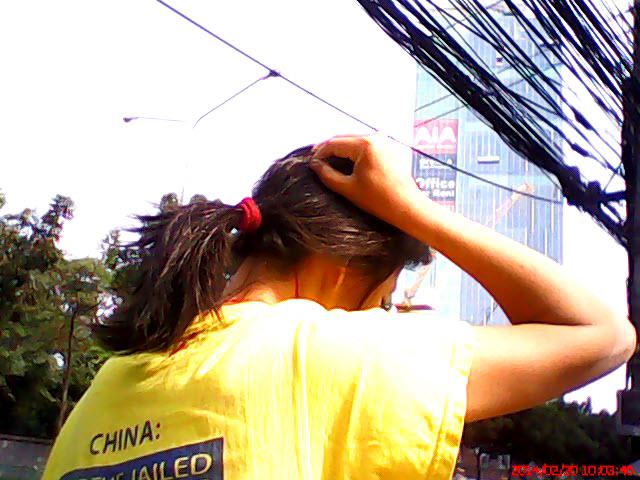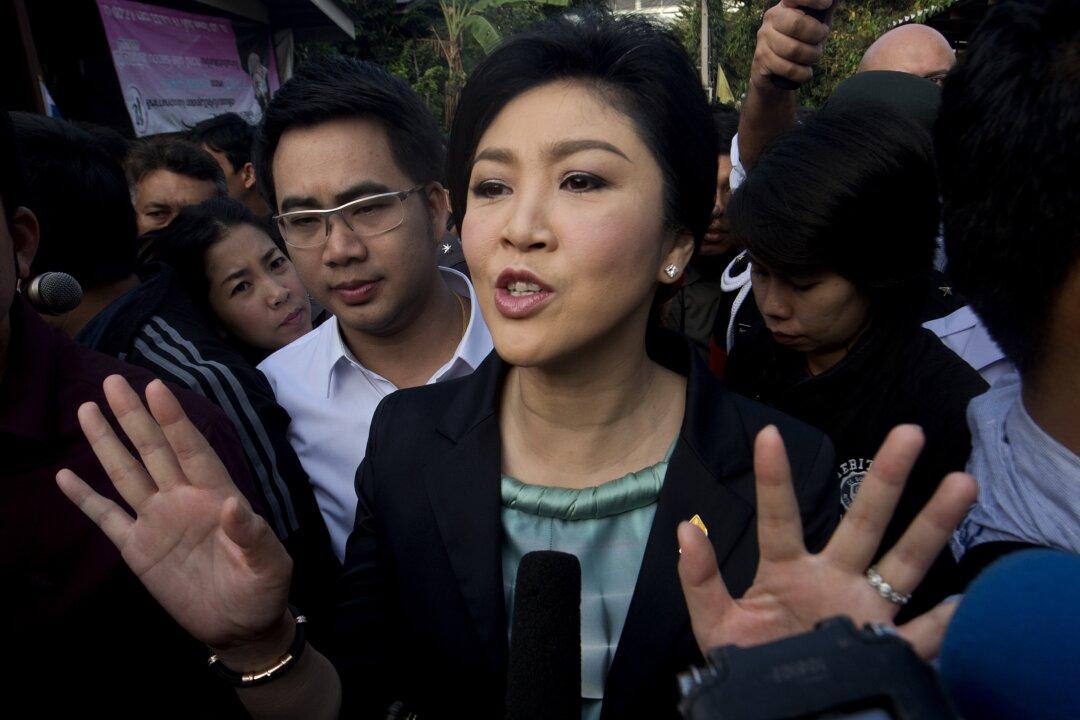BANGKOK—With little opposition from police, tens of thousands of anti-government protesters took over important intersections in Bangkok Monday in a bid to force out the caretaker government of Prime Minister Yingluck Shinawatra.
The blocking of several key intersections began Sunday evening and by the following day they were teeming with large numbers of protesters.
The leadership of the anti-government protesters, the People’s Democratic Reform Committee (PDRC), had earlier stated they would take over 20 important areas in the city but later scaled that number down to 7.
Nevertheless, the seven intersections are key locations in the city’s commercial heart and blocking them could hold Bangkok’s downtown road system in a stranglehold.
Festive Atmosphere
However, the atmosphere around the rally sites was peaceful, festive, and noisy.
At the heart of each rally site is a large stage where protest leaders make speeches denouncing the Yingluck government and the upcoming snap elections scheduled for Feb. 2.
“Yingluck out” was an often-heard chant from the protesters, many of whom were waving Thailand’s national flag.
“The people have come here to protest for the sake of the future of Thailand,” said 70-year-old Weewat, a retired engineer who preferred not to give his surname. “We want fairness and justice.”
Speaking behind one of the stages, Weewat said the government led by Yingluck, which is aligned to her brother, former Prime Minister Thaksin Shinawatra, is corrupt to the extreme.
“Thaksin is one of the most corrupt men in the world,” said Weewat. “He uses all the bad elements of society to get what he wants. He uses the police who are like gangsters here.”
Thaksin was Thailand’s prime minister from 2001 to the time he was ousted by a military coup in September 2006. Despite currently living in exile, Thaksin has continued to have a large rural support base in the north and the northeast of the country that voted in his sister and the pro-Thaksin Pheu Thai Party into power in 2011.
Elections a ‘Charade’
The anti-government protesters said the elections are a charade and that reform of the political system needs to take place before true democracy can be practiced in Thailand. They want Yingluck to step aside so an unelected interim government can carry out reforms before any voting can be done.
Initially the protests were against a government amnesty bill that would allowed Thaksin to return to Thailand from self-imposed exile and be cleared of corruption charges.
Also the main opposition party, the Democrat party, is boycotting the Feb. 2 election and is heavily supporting the protest movement led by the PDRC. The PRDC is led by Suthep Thaugsuban, until recently a prominent Democrat member, who is a controversial figure seen by many as being a corrupt politician himself.
But Suthep is treated like a pop star around the rally sites where he said the efforts to shutdown Bangkok will continue until Thailand is free of Thaksin’s influence.
“We will shut down the city. We will do it all days and we will do it every day until we win,’’ Suthep said on Monday as reported by the Bangkok Post.
Potentially Catastrophic
In response to the ongoing political turmoil in Bangkok the Brussels based International Crisis Group (ICG) warns the situation is potentially catastrophic.
“The campaign by anti-government protesters to derail the Feb.2 election raises prospects of widespread political violence, and scope for peaceful resolution is narrowing,” said the ICG in a statement.
“Protests may aim to provoke a military coup, or encourage a judicial coup.”
The ICG warns of possible counterprotests if the protesters are to succeed in their bid to delay the Feb. 2 elections and install a caretaker government.
Since 2005 various protests by either anti-Thaksin or pro-Thaksin groups have taken place in Bangkok. The worst occurred in 2010 when over 90 people were killed, most of whom were pro-Thaksin red shirt protesters. There have been eight deaths related to the current round of demonstrations.



